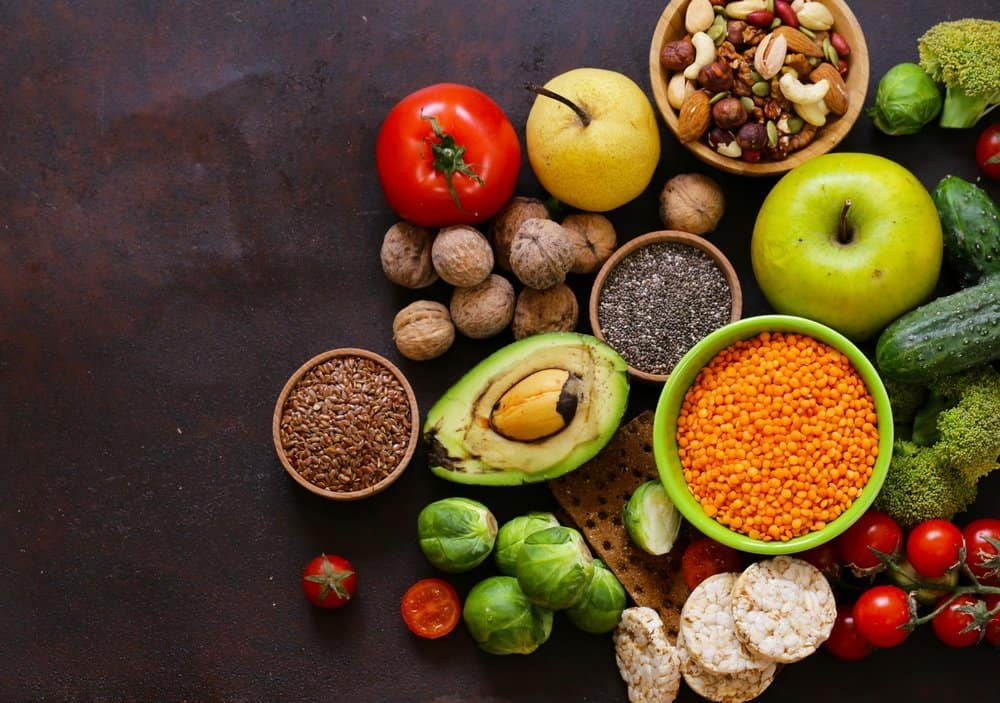A healthy immune system is one of the most important things we can do to stay healthy. Learn how to boost your immune system with these tips.
One of the most important things we can do to boost our immune system is to eat healthy foods and get plenty of sleep. But what about something else? What if you could boost your immune system by doing something as simple as walking or playing outside? Well, there are some studies out there showing just this! Here are 10 ways to boost your immune system:
Exercise regularly

This may seem like an obvious tip, but it isn’t. Many people think they need to exercise for hours to see any benefits from their workouts. However, research shows that even short bursts of activity help improve immunity. You don’t have to spend all day at the gym either; simply walking around the block once every hour or so should be enough to keep your body active.
Regular exercise helps build muscle mass and burn calories. Muscle tissue contains more mitochondria than any other part of our bodies. These organelles produce ATP or adenosine triphosphate, an essential source of fuel for cells throughout the body.
Moderate Exercise
Moderate aerobic exercise at least three times per week will boost immune health. Aim for 30 minutes of moderate-intensity exercise five days a week for the best results. Try walking briskly around the block or jogging slowly. Or take advantage of indoor gyms and swimming pools.
Exercise stimulates these powerhouses to increase the production of ATP, thereby boosting metabolism and burning stored fat. In addition, regular physical activity improves blood flow, oxygen delivery, lymphatic drainage, and circulation. All of these factors contribute to better overall health. And when it comes to fighting infections, exercising has been shown to improve resistance against colds, flu, and even HIV/AIDS. So go ahead and hit the gym today!
Get Plenty Of Sleep

Sleep deprivation decreases your ability to think clearly, making it harder to make good decisions. Sleep loss can also cause fatigue, mood swings, irritability, depression, memory lapses, headaches, trouble focusing and paying attention, a bigger appetite, less libido, less sex drive, trouble focusing, insomnia, and high blood pressure.
Lack of adequate rest affects both mental and physical performance. Research shows that lack of sleep weakens the immune system, leaving us vulnerable to infection. It is ideal to get at least seven hours of uninterrupted sleep per night; however, most adults require eight hours of sleep.
Getting adequate rest helps us feel better, especially when boosting our immune systems. Many doctors recommend 8-9 hours per night for adults. And while sleeping doesn’t directly affect your immune system, lack of quality sleep has been linked to increased risk factors for illness. So make sure you’re getting enough shut-eye each night.
Stay Hydrated

Dehydration occurs when we lose more water than usual through sweat, urine, stool, breathing, and crying. Dehydration affects nearly everyone at one point during their lifetime.
It seems pretty basic, right? Drinking water keeps everything running smoothly inside your body. When you drink too little water over time, your digestive tract slows down, which leads to poor digestion and absorption of nutrients. Not only does drinking less than half your daily fluid intake lead to dehydration, but it also causes constipation because your gut needs hydration to function properly. The bottom line is that staying hydrated is essential to maintaining optimal health.
How Much Should I Be Drinking Each Day? According to the Mayo Clinic, men should aim for 64 ounces of fluids daily. Women should aim for 56 ounces of fluids per day. Use this handy online calculator to find out how much water you should be consuming each day.
Eat Healthy Foods

Eating nutritious food boosts your immune system naturally. A diet rich in fruits, vegetables, whole grains, lean protein, nuts, seeds, fish, poultry, beans, legumes, low-fat dairy products, olive oil, herbs, and spices supports strong immunity. Avoiding processed meats, refined sugars, trans fats, alcohol, caffeine, artificial sweeteners, MSG, hydrogenated oils, and other additives lowers inflammation levels within the body.
Inflammation is a part of almost every long-term health problem, such as autoimmune diseases, heart conditions, metabolic disorders, neurological problems, breathing problems, skin problems, and problems with managing weight. By eating healthier, you’ll lower your chances of developing certain illnesses and reduce your risks of suffering from them later in life.
Eat right
The foods we eat affect how well our immune system functions. Eating nutritious food gives us energy while providing essential nutrients to maintain strong immunity. Some examples are fruits and vegetables that are high in vitamin C, meats that are high in iron, dairy products that are high in calcium, legumes that are high in zinc, and whole grains. Avoiding junk food and processed foods is another way to ensure proper nutrition. Junk food lacks fiber, which promotes constipation. Fiber keeps intestines clean and free-flowing, allowing waste matter to pass through easily.
As a result, toxins aren’t absorbed into the bloodstream where they would otherwise be eliminated. Also, overeating sugar causes insulin spikes, which leads to elevated triglycerides and cholesterol levels. High triglyceride and cholesterol levels cause inflammation within the arteries, leading to atherosclerosis. Atherosclerosis narrows the diameter of the arteries, reducing blood supply to various body parts.
Maintain a positive attitude
A positive outlook can help you fight off illness. Studies show that those who are optimistic about their future live longer lives than pessimists. It makes sense: if you believe that things will work out, then there’s no reason to worry about what might happen next.
This mindset could boost your immune system by helping you cope with stressful situations. For example, if you expect something bad to occur, you may become anxious and tense. But if you anticipate nothing terrible will happen, you won’t get stressed out. Instead, you’ll remain calm and relaxed.
So take some deep breaths and try to stay positive!
Manage your weight
Being overweight puts extra strain on your heart and other organs. Fat people have higher rates of hypertension, type 2 diabetes, coronary artery disease, gallbladder disease, gout, hyperlipidemia, and obstructive pulmonary disease. Being obese increases your risk of several types of cancers, including breast, colon, endometrial, kidney, liver, pancreatic, prostate, stomach, thyroid, uterine, and ovarian cancer. If you want to keep your immune system healthy, manage your weight, so you don’t strain your vital organs excessively.
Stay away from stressors
Stressful events weaken our immune systems. When we’re under a lot of stress, cortisol levels rise in our bloodstream. Cortisol suppresses natural killer cell function – one of the first lines of defense against foreign invaders such as bacteria and viruses.
NK cells destroy infected cells without harming surrounding normal tissues. The result? A weakened immune response. To avoid this problem, practice relaxation techniques like meditation and yoga. They reduce stress hormones and allow your mind and body to heal naturally.
Don’t smoke
Smoking damages lung tissue and reduces its capacity to absorb oxygen. It can also damage the lining of the mouth, throat, and stomach, increasing susceptibility to bacterial and viral infections. Cigarette smoking increases cancer risk by causing DNA mutations, weakening the lungs’ defenses, and triggering chronic obstructive pulmonary disease.
COPD results in mucus buildup in the airways, coughing, phlegm, and wheezing. This makes breathing difficult and may lead to pneumonia. If you choose to light up, try quitting now instead of later. You’ll save money on medical bills and feel healthier sooner.
Avoid alcohol
Alcohol consumption disrupts many bodily processes, especially digestion and elimination. Alcohol inhibits enzymes involved in breaking down carbohydrates and fats. This slows metabolism and prevents fat burning during rest periods between meals. Excessive drinking also raises blood glucose levels, contributing to obesity and Type II diabetes.
The liver converts excess ethanol into acetaldehyde, a toxin that harms cell membranes. Acetaldehyde triggers inflammatory responses that contribute to heart attacks and strokes. Finally, excessive alcohol use suppresses natural killer cell function, leaving people more susceptible to cold sores and herpes simplex virus type 2.
Get plenty of sunshine
Sunlight provides Vitamin D3, which supports healthy bone growth and protects against certain cancers. Sun exposure also produces melanocyte-stimulating hormones that stimulate skin pigmentation. Melanin acts as a sunscreen protecting the skin from ultraviolet radiation. However, prolonged sun exposure can increase your chances of developing skin cancer. To avoid this problem, wear protective clothing outdoors and apply SPF 15 or higher lotions daily. Limit time spent outside without adequate protection.
Conclusion
In conclusion, we all need to be aware of what foods are good for us and how they affect our health. Every day, we should eat fresh fruits and vegetables because they are full of vitamins and minerals important for good health. Also, we must drink lots of water to stay hydrated. And lastly, exercise regularly to maintain muscle tone and strength. These tips will help ensure that we remain strong and fit throughout life!
FAQs
Eating a diet rich in fruits, vegetables, whole grains, lean protein, and foods high in glutamine such as cottage cheese, kimchi, and pickles, can provide essential nutrients that support the immune system and enhance its performance. Additionally, limiting added sugars and processed foods, can also have a beneficial effect.
Yes, regular physical activity is shown to stimulate cellular immunity by increasing the circulation of immune cells. Exercise can also flush bacteria out of the lungs and airways, reducing the chance of getting a cold or other illnesses. Additionally, exercise makes the immune system function better and helps the body respond to viruses more quickly and optimally.
Stress affects the immune system in a variety of ways. Short-term stress, known as the “fight-or-flight” response, stimulates immune activity by mobilizing key immune cells into the bloodstream and then onto destinations, including the skin and other tissues. This large-scale migration of immune cells is comparable to the mustering of troops in a crisis.
Yes. Vitamin D3 and K2 have been shown to be important for various aspects of immune system function. If you’d like to try Athletic Greens, you can go to athleticgreens.com slash Huberman, and if you do that, they’ll also send you a year’s supply of liquid vitamin D3 and K2.
Adequate sleep is important for the immune system, so it’s important to establish a regular sleep routine, avoid electronic devices before bed, and create a comfortable sleep environment.
References
1. “10 Ways To Boost Your Immune System – Riverside Medical …“.
2.”Six Tips to Enhance Immunity | DNPAO – CDC“.
3. “How to boost your immune system – Harvard Health“.
4. “6 Ways to Boost Your Immune System – Houston Methodist“.
5. “7 ways to boost your immunity this fall – UCI Health“.
6. “9 Ways to Boost Your Body’s Natural Defenses – Healthline“.
7. “8 Tips to Strengthen Your Immune System – OrthoCarolina“.
Alex is a fitness aficionado, empowers others towards healthier, active lives through small, sustainable changes for lasting results. Visit Gearuptofit.com for insightful tips and resources to enrich a balanced lifestyle.
